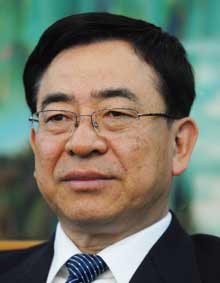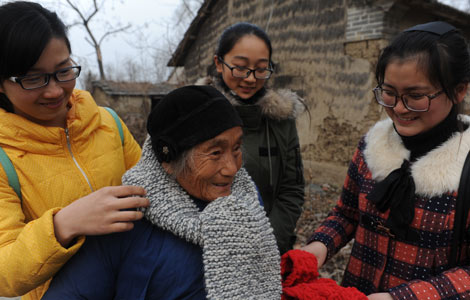
Zhang Yi, vice-chairman of the State-owned Assets Supervision and Administration Commission, was promoted to chairman of the main State-owned enterprises' administrative and managing body on Tuesday.
|
 Zhang Yi, chairman of the State-owned Assets Supervision and Administration Commission |
The official website of the commission changed Zhang's title from vice-chairman to chairman quietly on Christmas Eve and confirmed his title change to the media on Wednesday.
Both Zhang and Jiang were transferred to work at the commission as vice-chairman and chairman, respectively, in March 2013, from their former posts as Party chiefs of Ningxia Hui autonomous region and China National Petroleum Corp. Zhang has actually been carrying out the sub-chairman's duties since Jiang's dismissal.
Born in 1950 in Heilongjiang province and majoring in forestry at college, Zhang's recorded career started as a prefectural Party secretary of the Greater Khingan Mountains in Heilongjiang. He quickly worked his way up to provincial leader in Heilongjiang, Hebei and Ningxia and then to vice-Party secretary of the Communist Party Central Committee's Discipline Inspection Commission.
Zhang is the fourth head of the commission since its establishment in 2003. It is responsible to investors and supervises and manages 113 large State-owned enterprises as well as many of their branch businesses.
Strong in Party work, Zhang does not have as dazzling a career record in economics, finance and management as his three predecessors.
|
 |
The retirement age for ministerial officials is 65 in China. The remaining two years for Zhang, if he works in his new post until his retirement, will not be easy for him because the commission is in charge of sketching out and implementing a series of pressing State-owned enterprises reforms, according to the Third Plenum of the 18th Central Committee of the Communist Party of China.
The reform plan indicates that by 2020, 30 percent of State-owned enterprises' profits should be handed over to the government to improve the livelihood of the general public. Currently, the ratio is lower for general State-owned enterprises, SOE resources and energy giants and for military SOEs.








